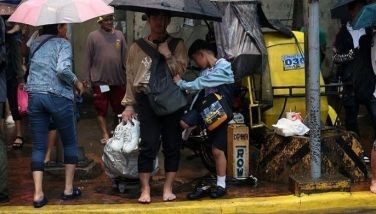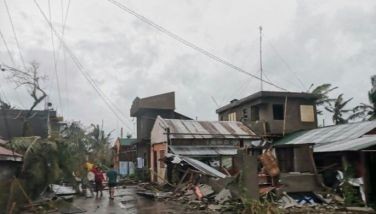Pinoys top shabu users in East Asia
BAGUIO CITY, Philippines – The Philippines has the highest rate of shabu abuse in East Asia, with 2.1 percent of Filipinos aged 16 to 64 using the illegal drug, the 2011 United Nations (UN) World Drug Report said recently.
According to the UN report, consumption of shabu, dubbed as the poor man’s cocaine, and marijuana remains to be the main drug threat in the Philippines.
Based on records provided by the Philippine Drug Enforcement Agency (PDEA), from January to October 2011, Filipino authorities seized 250 kilograms of shabu worth $68 million (P2.92 billion).
During buy-bust operations, PDEA was able to confiscate 818 kilograms of marijuana, 17,222 grams of cocaine, and 960 tablets of Ecstasy, worth $17.4 million (P748 billion), $2 million (P86 million) and $26,790 (P1.5 million), respectively.
The UN World Drug Report added that out of 9,850 drug operations, 8,491 suspects were arrested and 9,995 cases were filed in court.
The report also noted that the primary organizers and financiers of shabu trafficking are still Chinese organized crime groups, although a new trend involves African-produced shabu smuggled for distribution in Southeast Asia.
PDEA-Cordillera director Gil Castro reported in November 2011 that the international drug syndicate Western African Drug Syndicate (WADS), which operates mostly in Southeast Asia, has made Baguio City its operations hub in Northern Luzon.
Castro added that the syndicate has already recruited two female students and is eyeing 50 more, based on the huge student population of at least 80,000 in the city.
Although the UN hailed the Philippines’ success in dismantling shabu laboratories and arresting manufacturers, it also expressed alarm over the drug trafficking in the country.
“The scale of the trafficking abuse problem in the Philippines continues to pose a major challenge in prosecution,” the UN report said.
It cited court records provided by the Court Administrator of the Supreme Court, that as of December 2011, almost 30 percent of pending court cases in the National Capital Region were drug-related.
The 2011 UN Drug Report also acknowledged the daunting task of tackling transnational drug trafficking organizations without strong legal tools such as provision for judicially authorized interception of criminal communications, plea bargaining, and an efficient drug asset forfeiture process.
- Latest
- Trending

































